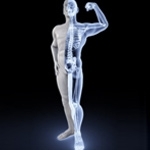Bones provide us with support, mobility, and protection. However, as we age our bones naturally become weaker and more susceptible to osteoporosis (low bone density), fracture, and other bone-related conditions.
Several simple strategies can help keep our bones healthy and strong as we age. Let’s talk about those strategies and where you can seek expert care for your musculoskeletal system health in Santa Barbara.
Consume Calcium and Vitamin D rich foods
Our skeleton stores calcium, a mineral that is necessary for our body to function properly. This mineral is especially important as a building block for our bones.
For proper functioning of the body and healthy bones, we must get calcium from the food we eat. Also, vitamin D helps our body to absorb and utilize calcium from food.
If we do not get enough calcium, the calcium is removed from our bones. Over time this causes bones to grow weaker and more prone to fractures. The loss of calcium and other minerals from the bone also leads to osteoporosis, a disorder in which bones become porous and more breakable.
Consuming a diet rich in calcium and vitamin D is crucial for maintaining strong and healthy bones, especially as we age.
Listed below are some calcium and vitamin D-rich foods that you should incorporate into your diet for strong and healthy bones.
- Dairy products like milk, yogurt, and cheese
- Leafy green vegetables like kale, broccoli, bok choy
- Fortified foods such as cereals, plant-based milk alternatives, and fortified orange juices
- Tofu
- Fatty fish
- Egg yolk
- Mushrooms
- Cod liver oil
If your diet does not provide enough calcium or vitamin D, consider supplements from the pharmacy. Consult your primary care provider. Sun exposure is also a good source of vitamin D. 15 minutes of sunlight a few times a week is a good start.
Weight Bearing Exercise
Regular exercises and physical activities, particularly weight-bearing exercises, can play a crucial role in maintaining bone strength. Physical activities such as jogging, walking, dancing, and weightlifting stimulate bone growth and help limit bone loss.
Two to three hours of moderate intensity exercise per week is optimal for good bone health. Aerobic exercise such as walking, swimming or hiking is good. Vigorous activity like running or strength training will also optimize bone strength and musculoskeletal health.
Quit Smoking and Limit Alcohol Intake
Not only is smoking bad for overall health, it diminished bone density. Also, excessive alcohol intake interferes with the ability to absorb calcium. Quitting smoking and limiting alcohol will greatly enhance your bone health.
Bone Density Scans
Bone density testing with a DEXA scan (dual-energy X-ray absorptiometry) can quantify your bone health. The results offer guidance to your orthopaedic or primary care doctor on how to best treat bone loss. Detecting bone problems such as osteoporosis enables your doctor to take preventive measures before they worsen.
Maintaining strong and healthy bones as you age requires a combination of exercise, diet, and healthy lifestyle choices. By following these tips, you can reduce your risk for bone-related problems and promote good bone health.
For further information, consult the Santa Barbara Bone and Joint Clinic.







